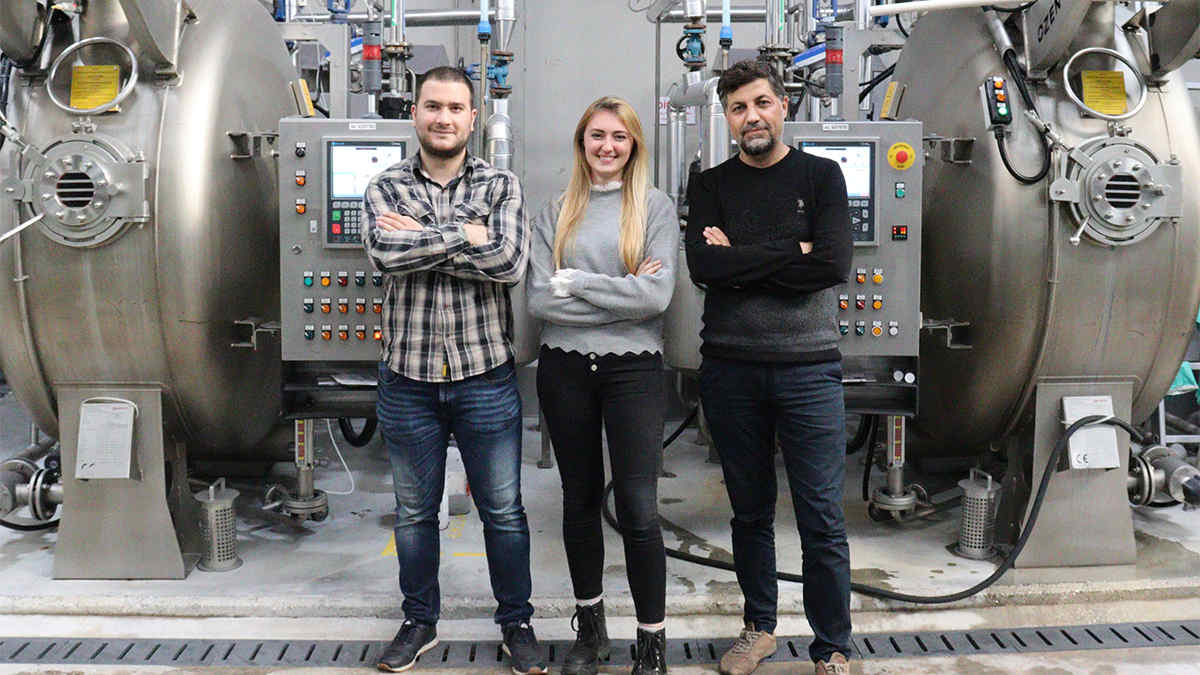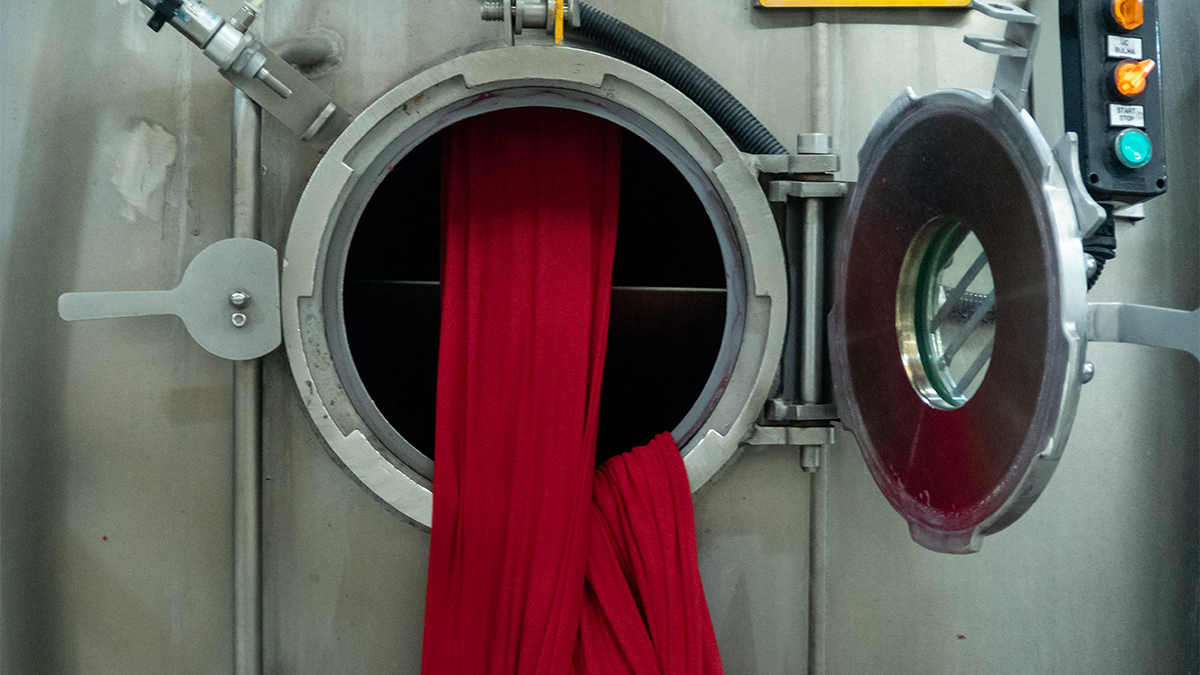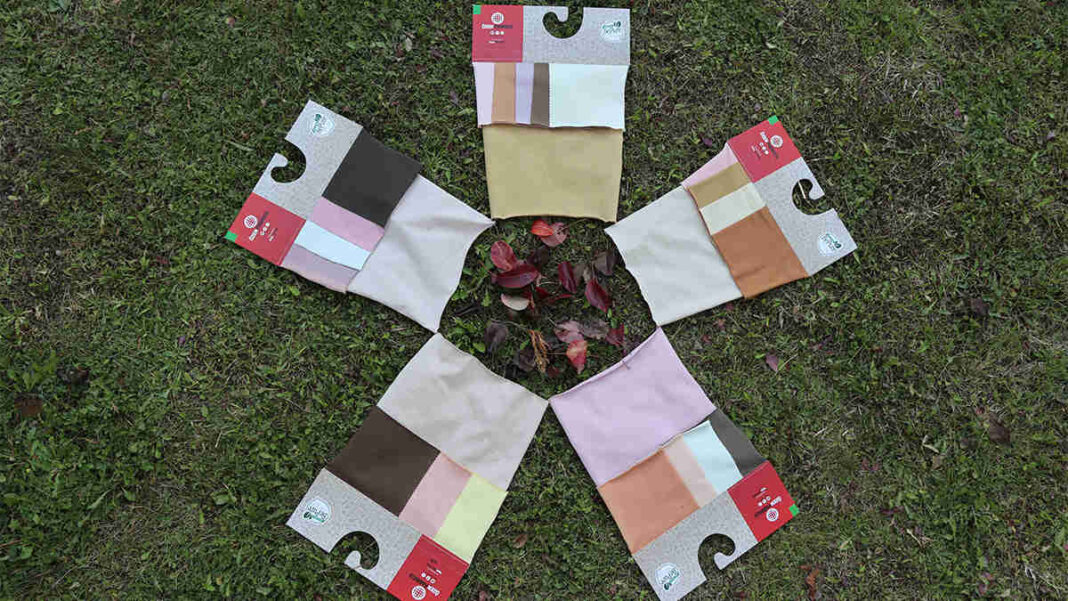Özen Mensucat, which was established under Taha Group in 1994, today provides services to leading companies in Europe and America, especially the Turkish textile industry, as a company specialized in the dyeing and finishing of knitted fabrics. Continuing the efforts to reduce their environmental impact with the R&D studies that they have been carrying out for many years; the company today produces 1,500 tons of cotton, polyester, polyamide, viscose, linen, hemp, modal, wool, cashmere, silk and their blend yarns for various international brands, primarily LC Waikiki, with 450 employees in a closed area of 40 thousand m2. We talked to Özen Mensucat Higher Textile Engineer, R&D Engineer Responsible for Natural Dyes Eray Akkuş, about the sustainability activities of the company and the details of the natural dyeing process.
Özen Mensucat has been fighting the climate crisis for many years
Saying that Özen Mensucat’s fight against the climate crisis has been going on for many years, Eray Akkuş stated that they constantly update and develop their sustainability approaches in line with the UN’s sustainable development goals and ILO standards. Noting that they also made their employees aware of this issue and they turn towards the consumption of fewer resources and raw materials during production, Akkuş said; “We make our work more efficient by implementing digital transformation studies. We use LEDs in all lighting. All of our lines that may experience heat loss are insulated. In the last year, we sent 89 thousand kg of paper, 53 thousand kg of plastic and 29 thousand kg of metal waste generated in our enterprise to recycling facilities and brought them back to the economy. Water consumption has been reduced by 24%, steam consumption by 36% and electricity consumption by 12% since 2013 with the process development studies at Özen Mensucat”.
“We have the best score in the area according to the Higg Index score”
Özen Mensucat regularly reports to the Higg Index, a self-assessment standard created to evaluate environmental and social sustainability at every stage of the supply chain. Stating that the company has the best score in the area according to the Higg Index score that is verified by an inspector, Eray Akkuş said; “In addition, we received the Care For Water approval, an Inditex Group approval for products produced with processes and technologies that reduce water consumption, as the best performing company in Turkey by remaining 8% below the perfect level. All of our customers can see our Higg Index score and Care For Water approval from the relevant sections.”

“We reduced our carbon emissions by 10.3% in 2020”
Noting that they have started to measure total carbon emissions in 2019, Eray Akkuş relayed that with the improvements in the processes, they have reduced carbon emissions per kg of fabric by 10.3% in 2020 compared to the previous year. Akkuş stated that they will announce the net-zero target after updating their short, medium and long-term action plans.
All of the electrical energy used in Özen Mensucat production facilities is obtained from sustainable energy sources with an I-REC certificate. Disclosing that they received the I-REC certificate in 2021, Akkuş said that although the use of renewable energy creates a disadvantage in terms of cost, it significantly contributes to the more sustainable production targets. Akkuş also stated that their work continues to obtain the ISO 50001 Energy Management Certificate. In addition, Özen Mensucat has a procedure with which it inspects its suppliers every year on occupational health and safety, water and energy consumption, social and environmental sustainability.
With the natural dyeing method, the amount of wastewater is significantly reduced
Saying that they have been working on the production of fabrics coloured with natural dyes since 2015, Eray Akkuş noted that they succeeded in producing fabrics coloured with completely natural dyestuffs and without using any synthetic chemicals as a result of long researches and studies. Stating that the method was developed by a technical team specialized in dyeing, consisting of people from the production and R&D department, Akkuş continued his words as follows:
“Today, the wastewater loading resulting from the dyeing process of a fabric naturally dyed in Özen Mensucat is quite low. Significant savings were achieved in the use of chemicals, water and energy in the process. There are 50% water, 45% electricity and 70% steam savings compared to a conventional cotton dyeing process. We have the natural dyes we use and the fabrics we produce with these dyes tested in a limited number of natural dye analysis laboratories in the world. In addition, the natural dyes are included in the GOTS 6.0 list as ‘Natural Dye’. However, there is still no certification program that will certify only natural dyes and naturally dyed fabrics in general scope and have international validity”.

“We attach importance to the fact that plant-based resources are completely sustainable”
Özen Mensucat prefers to use only plant-based dyestuffs among several different natural dyestuffs, including vegetable, animal and mineral/mineral (clay) based, in natural dyeing processes. Emphasizing that there are also non-sustainable plant resources, Eray Akkuş stated that they attach importance to the fact that the plant resources they use are completely sustainable. Akkuş said: “The plant resources we use do not have nutritional value for other living beings, no trees are cut to obtain these resources. In addition, none of the resources we use are specially grown to obtain natural dyes. Most of the resources we use are wastes, and the rest consists of plants that grow spontaneously in nature in large quantities.”
“Our natural dyed fabrics attracted a lot of attention in the foreign market”
Eray Akkuş stated that while the processes to obtain naturally dyed fabrics are sustainable, natural dyes are quite costly and colour yield is significantly low. Expressing that the interest in naturally dyed fabrics was limited especially in the domestic market due to these disadvantages, Akkuş said that their products received a lot of attention from foreign customers and international big brands. Akkuş stated that the exports of naturally dyed fabrics to these markets continue to increase day by day and pointed out that there may be a supply shortage in sustainable natural dye resources as a result of the high demand for the future. Akkuş added that they constantly follow the supply and demand of natural dyes all over the world and that they stock in advance the necessary ones from sources they think may experience a supply shortage.
